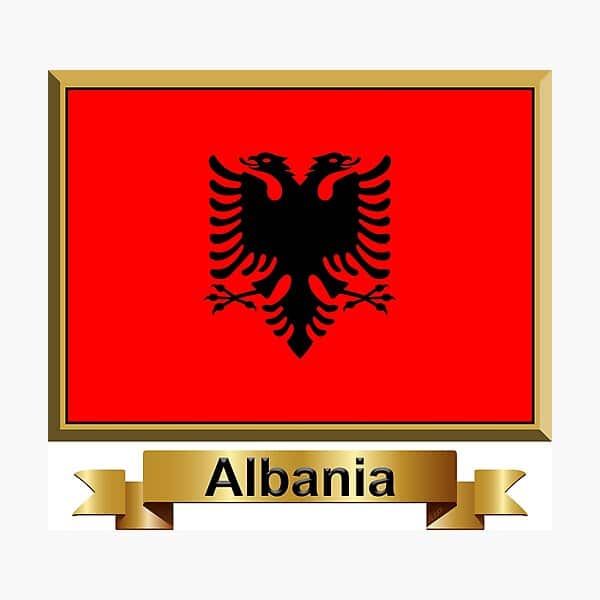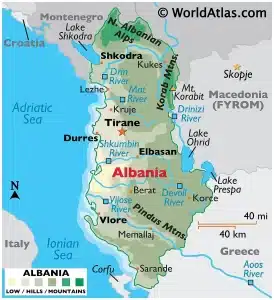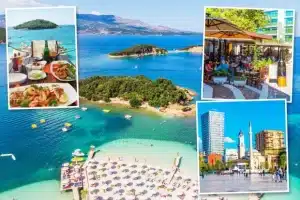Metro
Albania: From Ancient Illyrians to Modern Democracy

The history of Albania
Albania is located in the western part of the Balkan Peninsula, on the Strait of Otranto, the southern entrance to the Adriatic Sea. The origins of the Albanian people are not definitely known, but some researchers believe that they are the direct descendants of the ancient Illyrians, a group of Indo-European tribes that inhabited the region since prehistoric times. The Illyrians were conquered by various empires, such as Rome, Byzantium, Bulgaria, and Venice, and influenced by their cultures and religions.
The Albanians emerged as a distinct people in the 11th century and formed their own principalities and kingdoms in the 12th to 14th centuries. They resisted the Ottoman invasion in the 15th century under the leadership of Skanderbeg, a national hero, but eventually succumbed to Ottoman rule for about five centuries. During this time, many Albanians converted to Islam, while others remained Christian or adopted a syncretic form of religion.
See population, official language and more…

Albania

Albania
The Albanians developed a national consciousness in the 19th century, as part of the larger phenomenon of the rise of nationalism under the Ottoman Empire. They participated in several uprisings and wars against the Ottomans, as well as against other Balkan states that claimed parts of their territory. Albania declared its independence in 1912, but faced territorial disputes and foreign interventions from Serbia, Greece, Italy, and other countries. Albania became a kingdom in 1928 under Zog I but was invaded by Italy in 1939 and became part of Mussolini’s Greater Albania project. During World War II, Albania was occupied by Nazi Germany and witnessed a fierce resistance movement led by communist partisans. After the war, Albania became a one-party communist state, the People’s Socialist Republic of Albania, which lasted until 1991. The communist regime was dominated by dictator Enver Hoxha, who isolated Albania from the rest of the world and oppressed any dissent. Following the collapse of communism, Albania transitioned to democracy and market economy, but faced many challenges such as political instability, social unrest, economic crisis, corruption, organized crime, and ethnic conflicts. Albania is a candidate for joining the European Union (EU) and has made some progress in implementing reforms and improving governance. Albania is also a member of NATO and other international organizations. Albania is located in the western part of the Balkan Peninsula on the Strait of Otranto, the southern entrance to the Adriatic Sea. The origins of the Albanian people are not definitely known, but some researchers consider them to be the direct descendants of the ancient Illyrians. Albania was part of various ancient and medieval states, such as Illyria, Rome, Byzantium, Bulgaria, and Venice. The Albanians emerged as a distinct people in the 11th century and formed their own principalities and kingdoms in the 12th to 14th centuries. The first independent Albanian state was founded by the Albanian Declaration of Independence in 1912, following a short occupation by the Kingdom of Serbia. Albania faced territorial disputes and foreign interventions from Italy and Nazi Germany in the 20th century. After World War II, Albania became a communist state that isolated itself from the rest of the world until the 1990s, when it transitioned to democracy.





